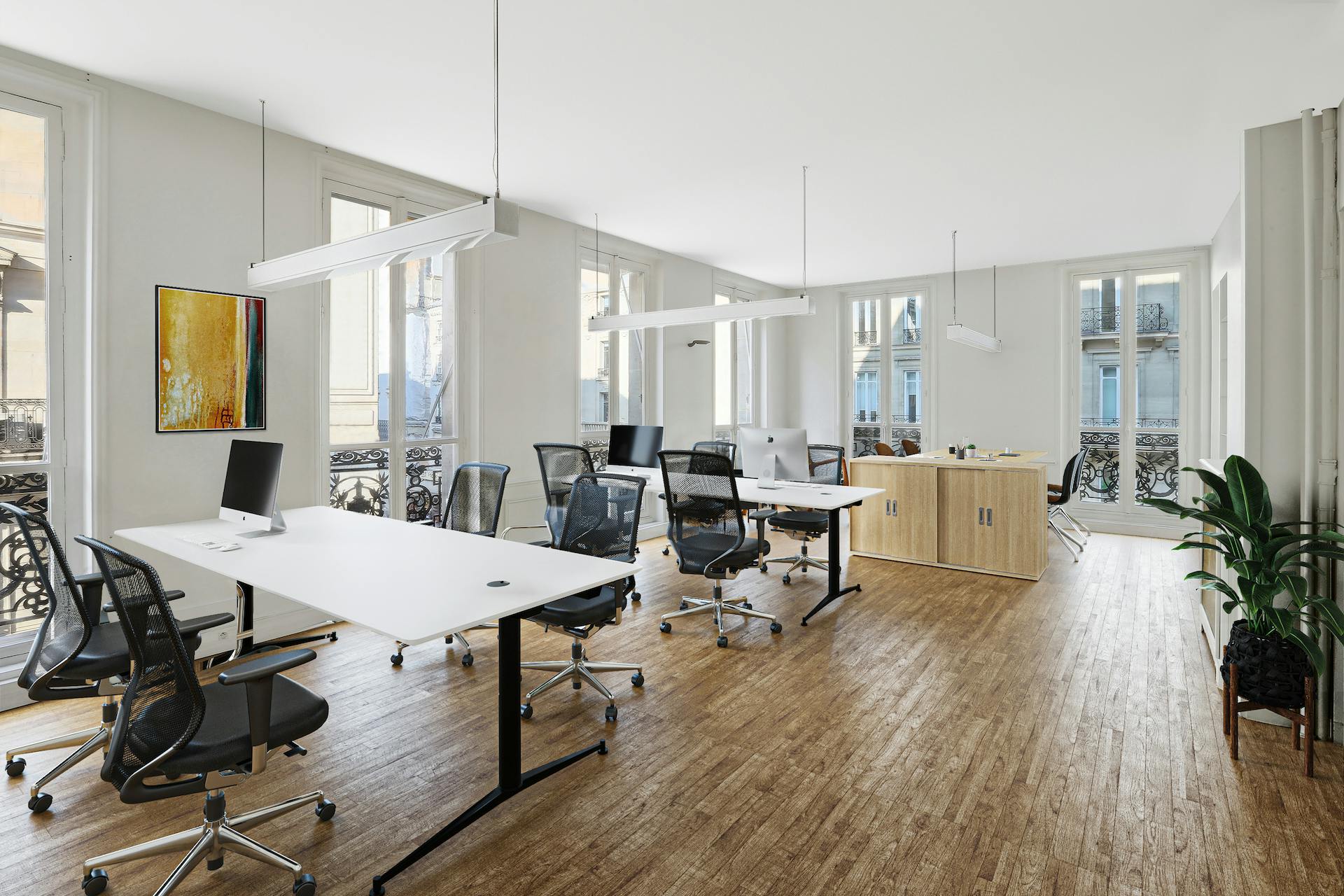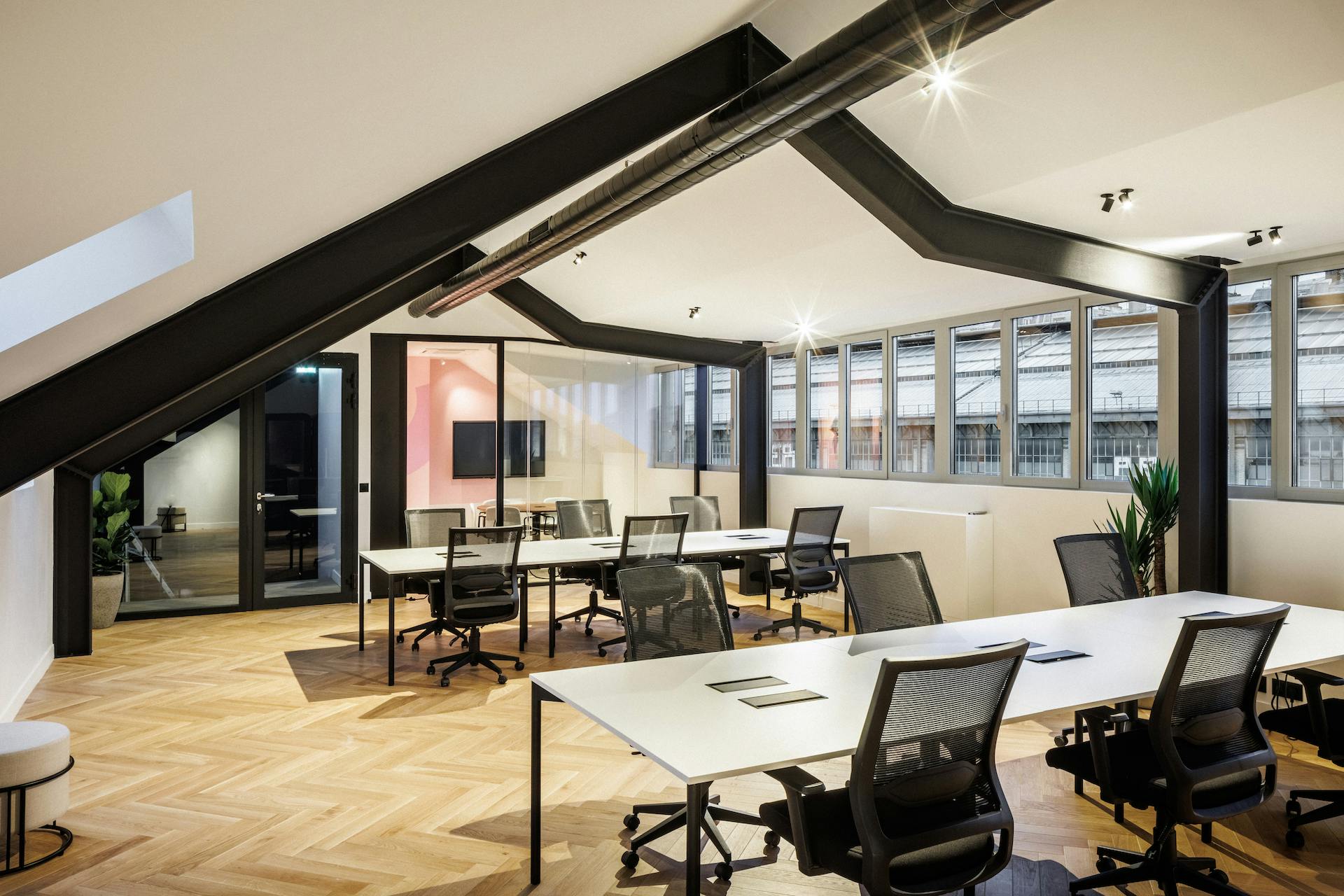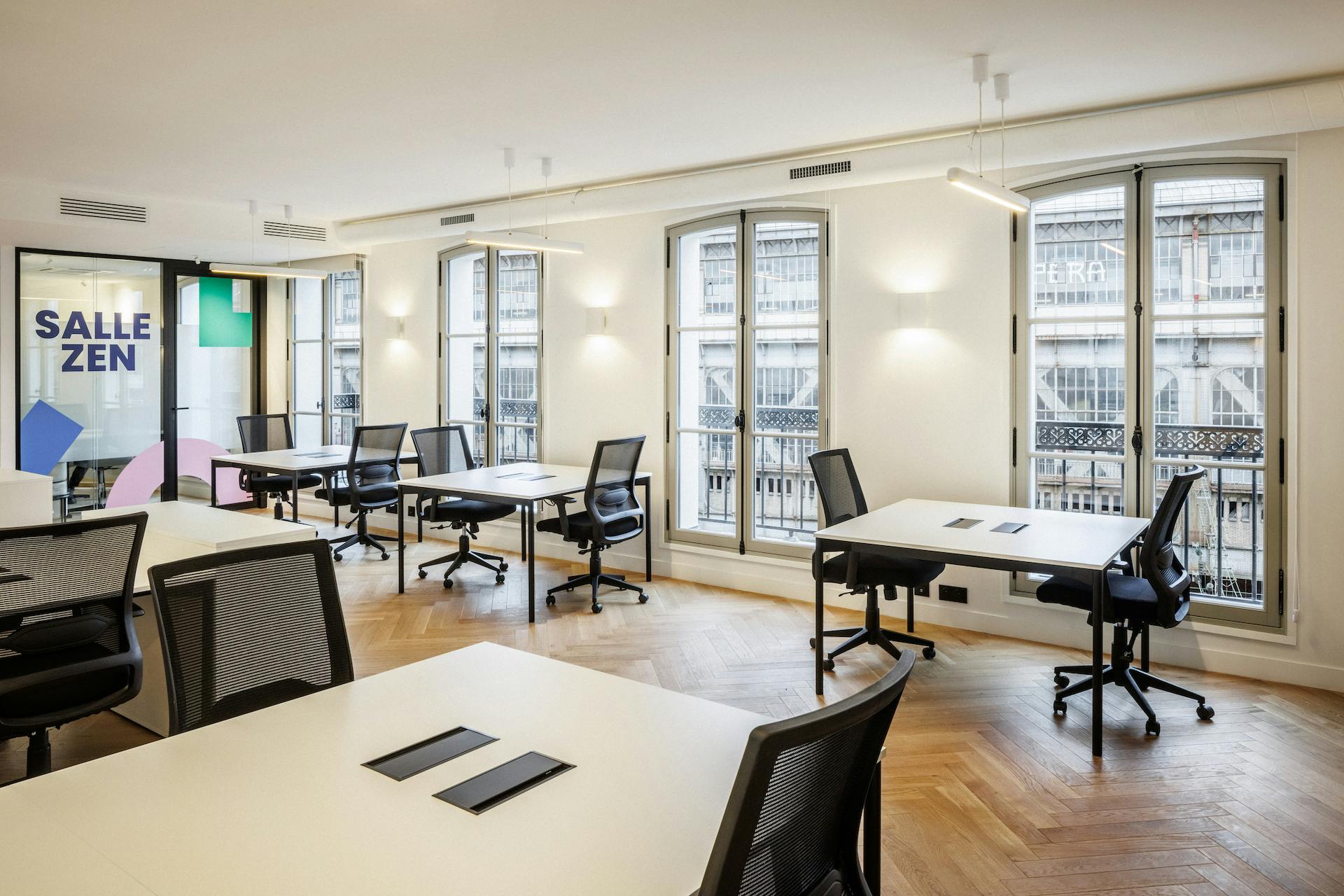

All you need to know about shared offices
Shared offices are on the rise, emerging as a major trend in today's professional world. They represent modern environments conducive to collaboration and innovation, where multiple companies share a single space. This formula is rapidly gaining popularity because it offers an attractive alternative to traditional offices, fostering synergy between companies with optimal resource utilization.
Whether you're an efficiency-seeking entrepreneur, a growing startup, or an established company looking for flexibility, we invite you to explore how shared offices can meet your professional needs and boost your success.
What is a shared office?
Shared offices represent a modern evolution of workspaces, providing a flexible alternative to traditional offices and coworking spaces.
Unlike traditional offices where a single company occupies an entire floor, flexibility reigns supreme here. Shared offices bring together multiple companies or independent workers in one place, with each entity having its own private office while sharing common spaces such as meeting rooms, kitchens, and lounges.
Compared to coworking spaces, shared offices are distinguished by their more defined structure. While coworking spaces often encourage communal work in open spaces, shared offices can offer greater privacy with individual offices. However, like coworking spaces, lease agreements are typically more flexible, allowing companies to modify their space according to their evolving needs.
Configurations can vary, including "bench" setups where everyone is aligned on the same table, or "open space" layouts with more freely arranged desks.
Advantages of shared offices
Shared offices offer a multitude of attractive benefits for businesses. Among these benefits, cost reduction is one of the most obvious. By sharing rental expenses, companies can significantly save on their real estate costs, allowing them to allocate financial resources to other aspects of their business, such as business development or talent recruitment.
Flexibility is another key advantage of shared offices. Unlike traditional commercial leases and as mentioned earlier, shared office rental agreements are generally more flexible. Companies can adjust their space according to their evolving needs, whether by expanding or reducing their footprint, or even adding additional services as they grow.
And what about networking opportunities? Working alongside other professionals can open unexpected doors.
Challenges and considerations
While shared offices offer many benefits, we acknowledge that everything is not always perfect in this domain, as they can also pose challenges that need to be considered.
Managing privacy is one such challenge. By sharing a workspace with other companies or workers, it can sometimes be difficult to maintain the confidentiality of sensitive information. This can be particularly concerning for companies operating in regulated sectors or needing to protect confidential data. To overcome this challenge, appropriate policies and security measures can be implemented: using private meeting rooms for confidential discussions or implementing robust firewall and cybersecurity protocols.
Noise is another common issue in shared offices. With multiple companies working side by side in the same space, noise levels can sometimes become a distracting factor for occupants. To mitigate this issue, it is important to design the space to reduce noise disturbances, using soundproofing materials, installing acoustic partitions, or creating dedicated work zones for activities requiring more concentration.
Finally, to optimize comfort and efficiency in shared offices, the work environment must be pleasant and functional. This may include setting up comfortable relaxation areas for breaks, installing ergonomic furniture to prevent health problems related to office work, or implementing policies that promote respect and collaboration among occupants.
How to choose the right shared office?
Finding the perfect shared office may seem like a challenging journey, but with our advice, you can find a space that perfectly meets the specific needs of your business.
The factors to consider for a thoughtful choice
Every business has unique office needs. What suits your business may not suit that of your competitor, yet this choice is crucial in maintaining the productivity and motivation of your employees. This is why it is important to choose your offices carefully. To do this, you will need to consider several criteria that we deem essential, such as:
- Cost: Ensure that the rental price aligns with your budget and includes all the services you need.
- Location: Check the ease of access to the shared office in terms of public transportation, parking, and accessibility for people with reduced mobility.
- Included Services: Inquire about the services included in the rent, such as internet access, electricity, cleaning, meeting rooms, etc.
- Contract Terms: Carefully examine the terms of the lease agreement, including the duration, termination conditions, and any additional fees.
Questions to Ask During a Visit
When visiting a shared office space, make sure to ask the following questions to verify if the place meets all your expectations:
- What services are included in the rent?
- What customization options does it offer?
- Are there any additional fees to consider?
- What is the policy for booking meeting rooms?
- What is the current security policy?
- How is the noise issue managed in this space?
At Deskeo, we find offices that meet your company's needs. If you want assistance in your search, feel free to contact us. Clients like Epsor have trusted our expertise and have been extremely satisfied with our collaboration. Discover everything you need to know about shared offices and how to choose the one that best suits your needs to optimize your productivity.


Contact Us
We find your Perfect fit!

